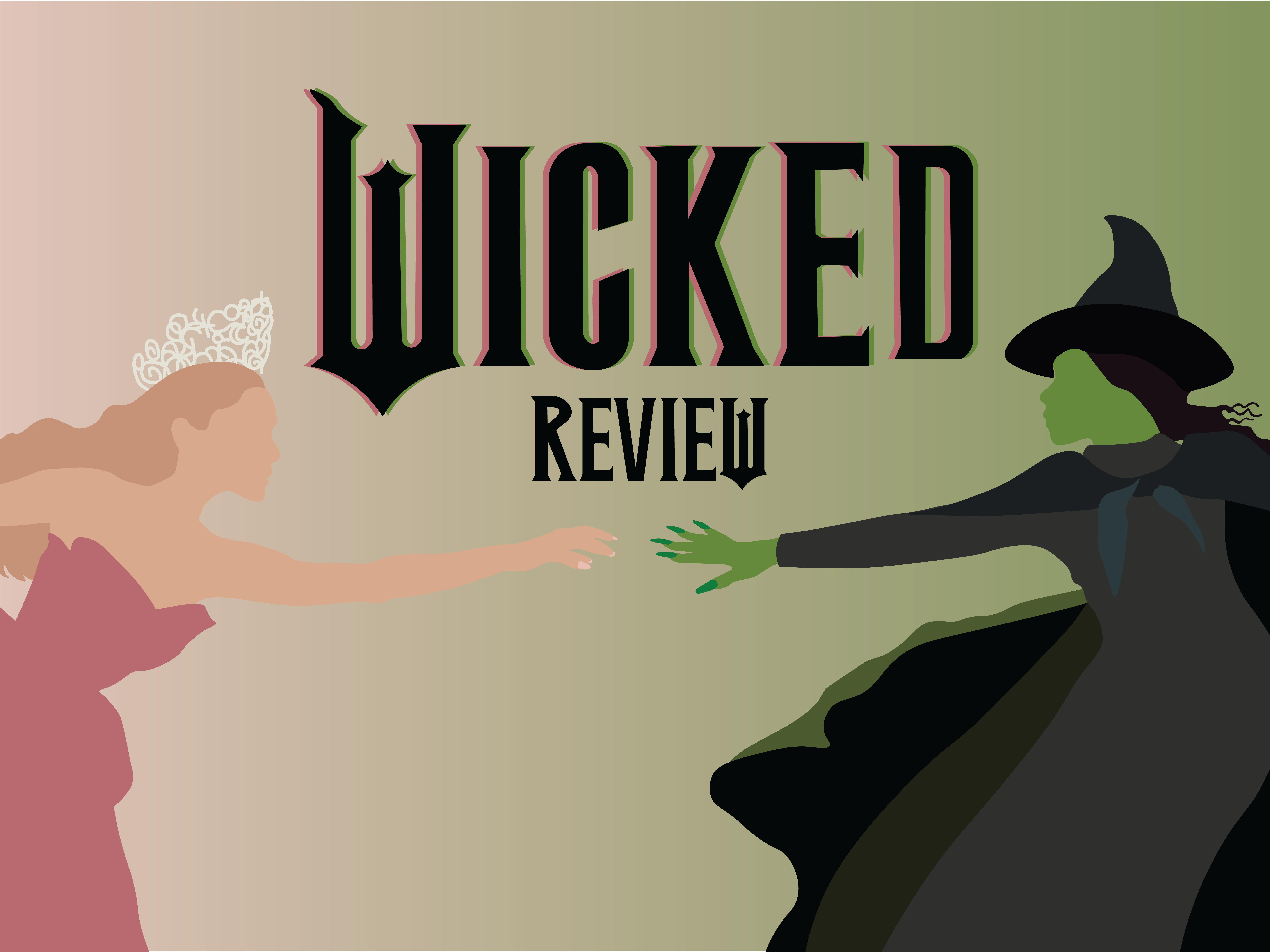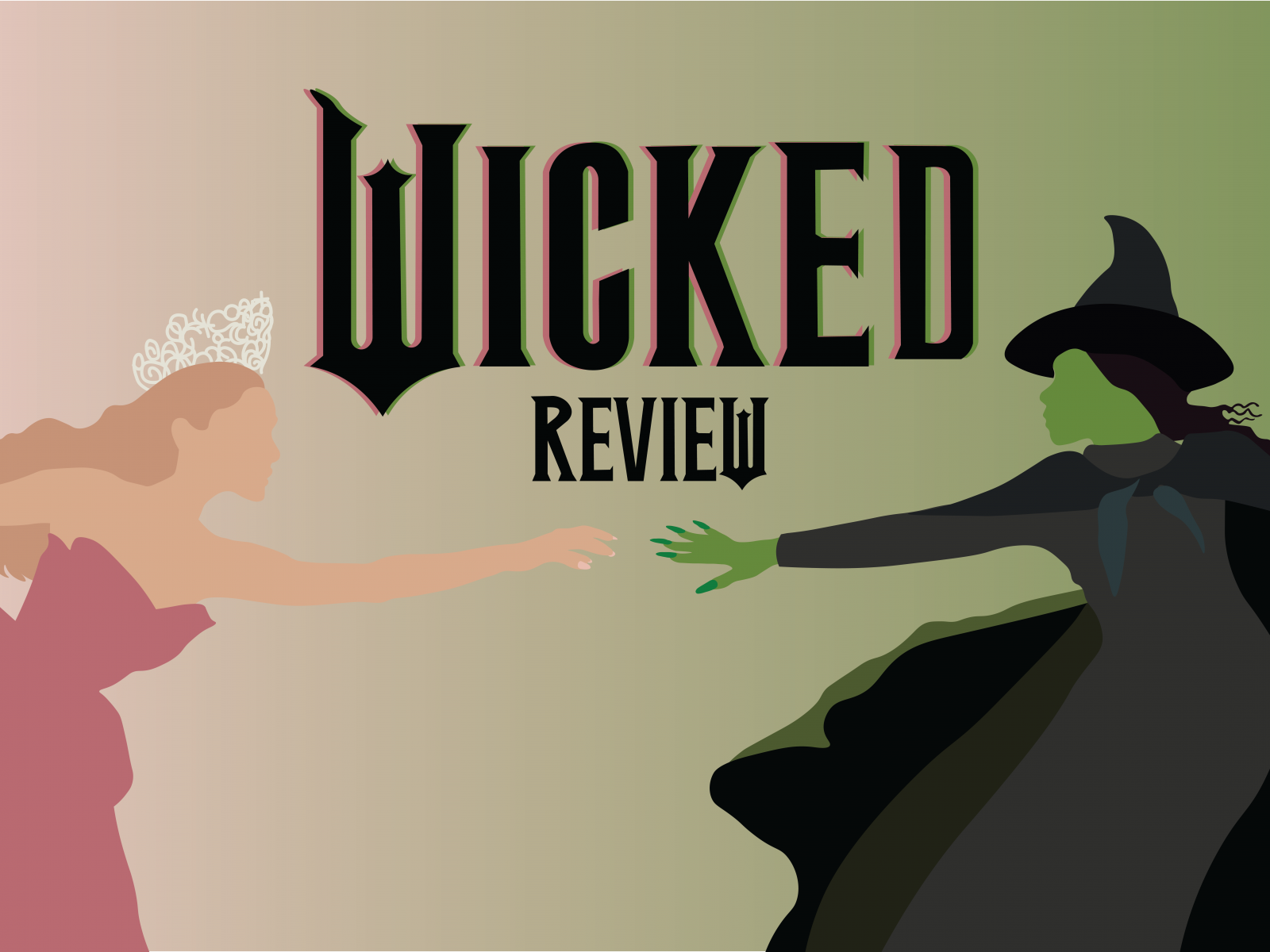Stephen Schwartz’s musical “Wicked” — after two decades of acclaim, rumors and anticipation — has finally been adapted for the big screen under the direction of Jon M. Chu. “Wicked,” a reimagining of MGM’s classic film “The Wizard of Oz,” expands the narratives of the witches of Oz and challenges their characterizations as “good” or “evil.”
Cynthia Erivo stars as Elphaba Thropp, the Wicked Witch of the West, alongside Ariana Grande as Galinda Upland, otherwise known as Glinda the Good Witch.
Let me be clear: I absolutely love the musical “Wicked.”

When I was 15, I listened to the “Wicked” Broadway cast recording front to back for the first time. If I wasn’t a theatre kid before that point, I was christened right there and then — baptized by Schwartz’ transcendental compositions.
Because of this love, I am fiercely protective over ‘Wicked.” My expectations for the film were high, as were my standards. While excited, I was unsure what to expect.
The verdict is in: I absolutely love the movie “Wicked.”
From set design to costuming to worldbuilding, no stone was left unturned by the creative team. Oz has never felt more real — I enjoy the muted color grading for that very reason. Believe it or not, saturation doesn’t have to be maxed out to instill a sense of whimsy.
The music I had memorized sounded wholly new, as if I was hearing “Wicked” for the very first time. From the archaic drumming before “No One Mourns the Wicked” to Glinda and Fiyero’s harmony in “Dancing Through Life,” I rediscovered old favorites and uncovered hidden gems.
Of course, there were several musical changes throughout the film, some of which I loved and some of which I could have done without. Speaking of “No One Mourns the Wicked,” I wish they had kept the ensemble singing the final chord of the line “the baby is unnaturally / green.”
However, Grande’s opt-up at the end of “No One Mourns the Wicked” was gorgeously executed, as was her Glinda.
Grande shocked many with her performance, despite her Broadway background. Before her time on Nickelodeon, Grande was in the musical “13.” Despite this, her established reputation as a pop princess left audiences unconvinced she could handle the operatic stylings of Glinda.
As Oz would have it, Grande’s talent cannot be categorized. Her colorful tone and acting prowess illuminated Glinda from within and lit the way for Grande’s interpretation.
Some argue Grande’s performance is simply a Kristen Chenoweth impersonation, but I disagree. Attentive listening reveals hints of Grande’s pop sound throughout the film, especially during “Popular.” Somehow, despite my initial hesitation with her casting for that very reason, the whispers of pop fit right in. Their delicate placement speaks to Grande’s care for the character.
I also found Erivo’s deviations from the sheet music gave new life to the material and to her character.
Like many others, I have always resonated deeply with Elphaba. Ostracized for her green complexion and prodigious sorcery, Elphaba embodies the central struggle of all outcasts — to be understood by others or to understand oneself.
Erivo’s interpretation of Elphaba was deeply earnest and emotive in ways I have never seen before. I knew she was a vocal powerhouse — her performances of “I’m Here” from “The Color Purple” and “Alfie” by Dionne Warwick were overwhelmingly impressive. Even so, from the moment she began to sing “The Wizard and I,” I was stirred, transfixed and enchanted.
Elphaba’s implicit power is fueled by Erivo’s implicit magic. Not only her virtuosic musicality, but her raw authenticity and lived experience grounded Elphaba. Erivo’s earthshaking performance satiated a hunger I didn’t realize I had.
At 16 years old, I saw “Wicked” live on the Gershwin stage. The experience was a privilege within itself, but I felt most fortunate to have witnessed Brittney Johnson’s luminous Glinda. Like Erivo, Johnson was the first Black woman to be cast principally in her respective role.
Representation for people of color in musical theatre has historically been scarce. Seeing a Black woman at the center of one of the most iconic musicals, in a role that is usually played by a white actress, is not insignificant, especially considering the themes of racism and fascism prevalent in “Wicked.”
I have seen the film twice, with plans to see it a third time. A fourth time is extremely plausible. By now, you must know where I stand on “Wicked.”
Also, let Grande and Erivo cry — they earned it.






















































































































